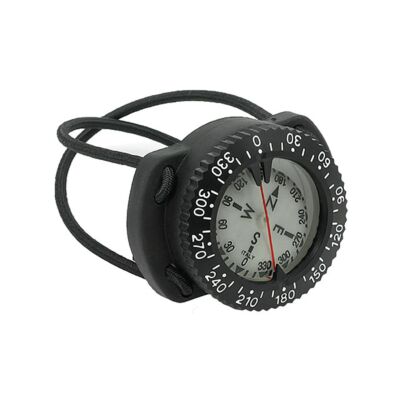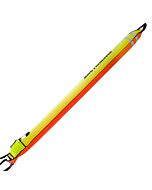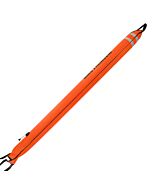DGX Tech Compass w/Bungee Mount and Cord
- Liquid-filled compass
- Ribbing on the bezel offers a secure grip
- Tech Compass features a tilt potential of +/- 10°
- Easy-to-read high contrast numbers with side-window
- Low profile depth compensating bungee mount
DGX Tech Compass w/Bungee Mount and Cord
The Tech Compass features a tilt potential of +/- 10°. The compass features an easy-to-read luminescent gauge face, a 360° ratcheted rotating bezel, a large side reading window and is very accurate. Smooth movement across a wide range of motion is provided by the specially designed compass needle card and the powerful magnets. The compass includes the popular low profile depth compensating bungee mount plus the bungee (aka shock cord). Available in versions balanced for either the Northern Hemisphere or the Southern Hemisphere.
Quality analog compasses have the compass card balanced on a needlepoint spindle, however a strong enough g-force impact on the compass body can knock the card off the spindle rendering the compass useless. Please protect the Tech Compass from g-force impact.
| Brand | DGX |
|---|---|
| SKU | DX-9050x |
| Weight | 0.300000 |
Customer Reviews
Compass Balance Zones
High quality analog compasses are designed for use within a certain area of the globe because the earths magnetic field not only varies horizontally, but also vertically, causing the needle to dip downward when the case is held level. The compass needle card is balanced with a small weight to counteract the downward dip, so the needle card does not drag or stick on the top or bottom of the capsule. If you take any compass to a significantly different part of the globe than where it was balanced, check the compass carefully before relying upon it. Our technical diving compasses are balanced either for the Northern Hemisphere or the Southern Hemisphere
Note that digital compasses, like the ones becoming popular in dive computers, do not have balance zones. Digital compasses are universal because they have a user 'calibration' feature, which is performed in the region where the diver plans to use the compass. A change in region simply requires a recalibration before use in a different location.







